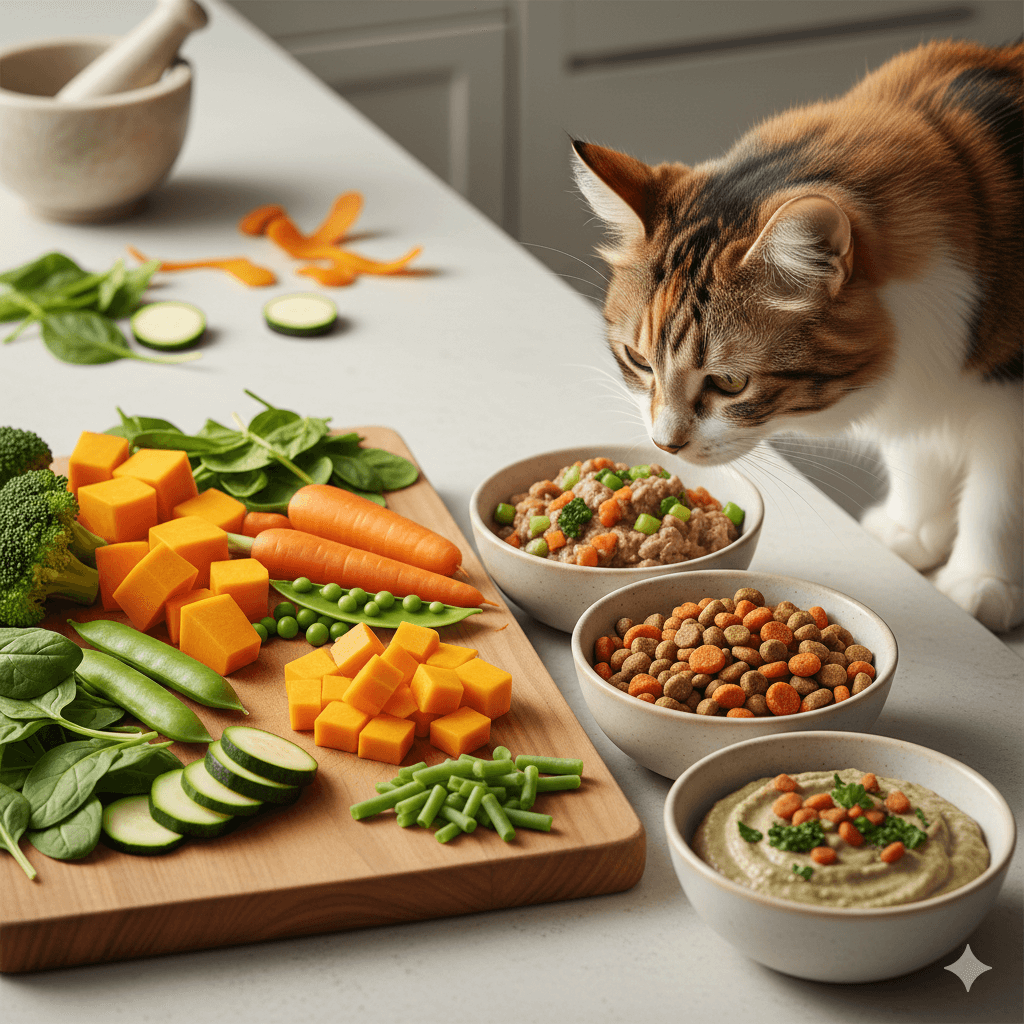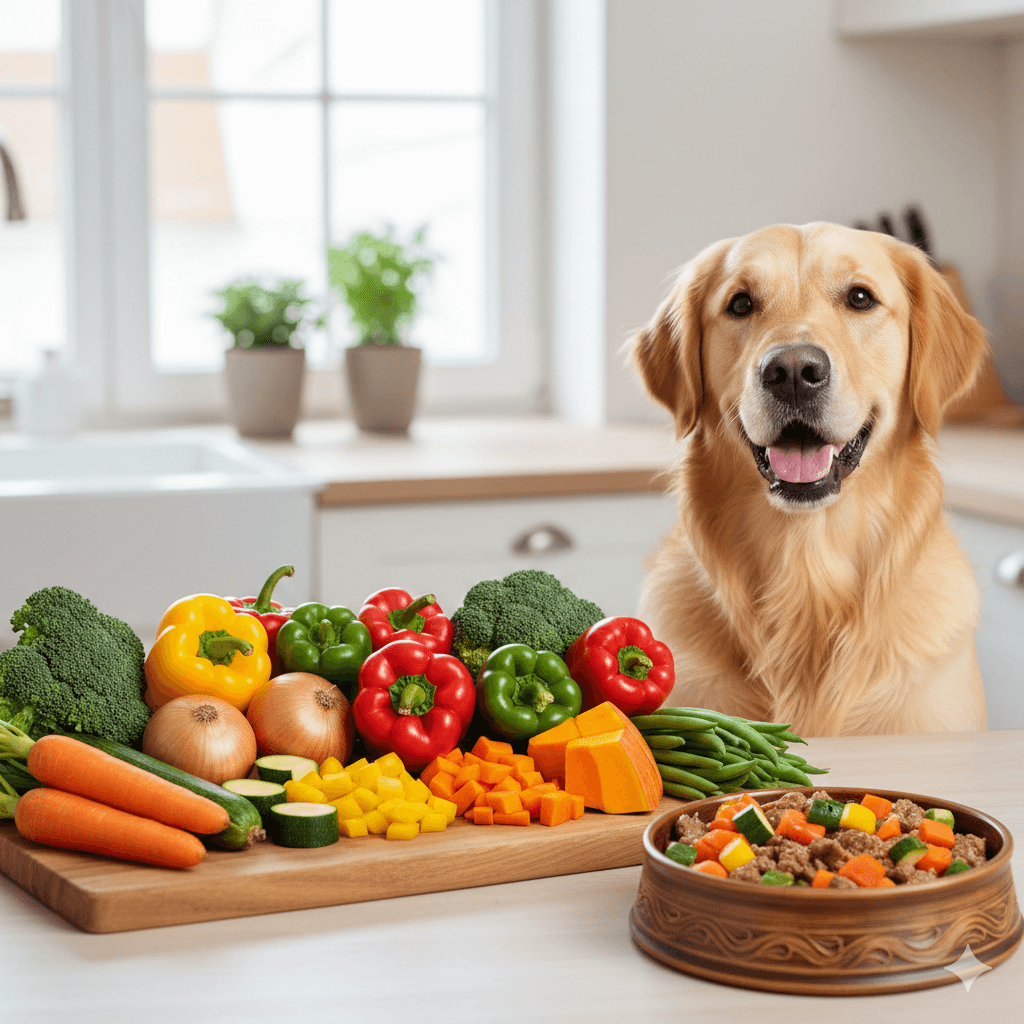Can Cats Eat Baby Food?
When it comes to feeding our feline friends, many pet owners wonder if baby food is a safe and nutritious option. Baby food is often viewed as a convenient and gentle alternative for cats, especially when they’re unwell or refusing their regular meals. However, not all baby food is suitable for cats, and certain ingredients can pose risks to their health. Understanding what types of baby food are safe and how to incorporate them into your cat’s diet is essential for ensuring their well-being. In this blog post, we’ll explore everything you need to know about feeding baby food to cats, from potential benefits to important precautions.
Potential Benefits of Feeding Baby Food to Cats
Baby food can offer some advantages for cats in specific situations, particularly when they need a bland or easily digestible meal. Here are some reasons why pet owners might consider using baby food as an occasional treat or supplement.
Easy to Digest:
Many baby foods are pureed and free of complex ingredients, making them gentle on a cat’s sensitive stomach.Encourages Appetite:
The smooth texture and mild flavors of baby food can entice picky eaters or cats recovering from illness.Hydration Boost:
Certain baby foods, like vegetable or meat purees, contain water content that helps keep cats hydrated.Convenient Option:
Baby food is readily available and easy to store, making it a quick solution for short-term dietary needs.Customizable Choices:
With a variety of flavors available, you can select options that align with your cat’s preferences and dietary requirements.
While these benefits make baby food appealing, it’s crucial to ensure the chosen product is safe and appropriate for your cat.
Ingredients to Avoid in Baby Food for Cats
Not all baby food is created equal, and some ingredients can be harmful to cats. Always read labels carefully to avoid these problematic components.
Onions and Garlic:
These common flavor enhancers are toxic to cats and can damage their red blood cells, leading to anemia.Added Salt and Sugar:
Excessive sodium or sugar can disrupt a cat’s electrolyte balance and contribute to obesity or diabetes.Artificial Additives:
Preservatives, colors, and artificial flavors may irritate your cat’s digestive system or cause allergic reactions.Dairy-Based Products:
Many cats are lactose intolerant, so baby food containing milk or cream can upset their stomach.Spices and Herbs:
Seasonings like pepper, nutmeg, or rosemary are unsafe for cats and should be avoided entirely.
By steering clear of these ingredients, you can ensure the baby food you choose is safe for your feline friend.
Check this guide 👉Can Cats Eat Beef Jerky? Best 7 Expert Tips!
Check this guide 👉Can Cats Eat Chicken Feet? Best 7 Expert Tips!
Check this guide 👉Can Cats Eat Cotton Candy? Best 7 Expert Tips!

Safe Ingredients in Baby Food for Cats | Unsafe Ingredients to Avoid |
|---|---|
Pureed chicken or turkey | Onions, garlic, or chives |
Plain vegetable purees (e.g., pumpkin) | Added salt or sugar |
Unsweetened applesauce | Artificial colors or preservatives |
Plain mashed peas or carrots | Dairy products like milk or cream |
Water-based broths (no seasoning) | Spicy or herbal seasonings |
How to Safely Incorporate Baby Food into Your Cat’s Diet
If you decide to feed your cat baby food, it’s important to do so responsibly to avoid any adverse effects. Follow these guidelines to ensure a safe and healthy experience.
Choose Meat-Based Options:
Opt for pureed meats like chicken, turkey, or beef, as they provide essential protein for your cat’s carnivorous diet.Check the Ingredient List:
Always read the label to confirm there are no harmful additives or allergens in the baby food.Serve in Moderation:
Baby food should only be given as an occasional treat or supplement, not as a replacement for balanced cat food.Mix with Regular Food:
Combine a small amount of baby food with your cat’s usual kibble or wet food to enhance flavor without overdoing it.Monitor for Reactions:
Watch for signs of digestive upset, allergies, or other adverse reactions after introducing baby food.
By following these steps, you can safely incorporate baby food into your cat’s diet without compromising their health.
Signs Your Cat May Not Tolerate Baby Food
Even when precautions are taken, some cats may not tolerate baby food well. Recognizing these warning signs can help you address issues promptly.
Vomiting or Diarrhea:
These symptoms indicate that the baby food may be upsetting your cat’s stomach or contains an ingredient they can’t digest.Loss of Appetite:
If your cat refuses to eat after trying baby food, it could signal discomfort or dislike for the flavor.Lethargy or Weakness:
A sudden drop in energy levels may suggest an allergic reaction or nutritional imbalance.Excessive Drooling:
Drooling can occur if the baby food contains irritants or if your cat finds the taste unpleasant.Swelling or Itching:
Facial swelling, itching, or skin irritation may point to an allergic reaction to an ingredient in the baby food.
If you notice any of these signs, stop feeding baby food immediately and consult your veterinarian.
Common Mistakes to Avoid When Feeding Baby Food to Cats
Feeding baby food to your cat requires attention to detail to avoid mistakes that could harm their health. Here are some pitfalls to watch out for.
Assuming All Baby Food Is Safe:
Not all baby foods are suitable for cats; always check the ingredient list thoroughly.Overfeeding Baby Food:
Feeding too much can lead to nutritional imbalances or weight gain over time.Ignoring Allergies or Sensitivities:
Cats can develop allergies to certain ingredients, so monitor their reaction closely.Using Baby Food as a Main Meal:
Baby food lacks taurine and other essential nutrients cats need, so it shouldn’t replace their regular diet.Neglecting Veterinary Advice:
Skipping a professional opinion can result in unknowingly harming your cat with inappropriate food choices.
Avoiding these mistakes ensures a safer and healthier experience for your cat.
Alternatives to Baby Food for Picky Eaters
If baby food isn’t suitable or appealing to your cat, there are plenty of alternatives that can encourage them to eat while meeting their nutritional needs.
High-Quality Wet Cat Food:
Many cats prefer wet food over dry kibble due to its strong aroma and soft texture.Homemade Cat Food:
Preparing meals with cooked chicken, turkey, or fish ensures freshness and control over ingredients.Cat-Specific Broths:
Commercially available broths designed for cats can add flavor and hydration to their meals.Freeze-Dried Treats:
These treats are nutrient-dense and can be crumbled over food to entice picky eaters.Interactive Feeders:
Puzzle feeders or slow-feed bowls engage your cat’s natural hunting instincts, making mealtime more appealing.
These alternatives provide creative solutions for encouraging your cat to eat without relying on baby food.
Understanding Your Cat’s Nutritional Needs
Cats have unique dietary requirements that must be met to maintain their health and vitality. Understanding these needs helps you make informed decisions about their diet.
High Protein Requirement:
As obligate carnivores, cats need diets rich in animal-based proteins to thrive.Essential Amino Acids:
Taurine, an amino acid found in meat, is critical for heart health, vision, and overall well-being.Limited Carbohydrates:
Cats don’t process carbohydrates efficiently, so their diet should focus on protein and fat.Hydration Importance:
Cats are prone to dehydration, so incorporating moisture-rich foods supports urinary tract health.Balanced Nutrition:
A complete and balanced diet includes vitamins, minerals, and fatty acids tailored to feline physiology.
By prioritizing these nutritional needs, you can ensure your cat stays healthy and happy, whether or not baby food is part of their diet.
Frequently Asked Questions About Cats and Baby Food
Can I use baby food as a long-term diet for my cat?
No, baby food lacks the complete nutrition cats need and should only be used occasionally.
Is pumpkin baby food safe for cats?
Yes, plain pumpkin puree (without added sugar or spices) is safe and can aid digestion.
What should I do if my cat accidentally eats unsafe baby food?
Contact your veterinarian immediately, especially if the food contained onions, garlic, or other harmful ingredients.
Can kittens eat baby food?
While some baby foods are safe, kittens have specific nutritional needs, so consult your vet before offering them anything new.
How much baby food can I give my cat at once?
Limit portions to a teaspoon or two mixed with their regular food to avoid overfeeding.
Feeding Baby Food to Cats: Proceed with Caution
While baby food can be a helpful tool for enticing finicky eaters or providing temporary relief during illness, it’s not a substitute for a balanced, species-appropriate diet. By choosing safe ingredients, serving in moderation, and monitoring your cat’s response, you can enjoy the benefits of baby food without compromising their health. Always prioritize your cat’s unique dietary needs and consult your veterinarian before making significant changes to their diet. With careful consideration, baby food can become a safe and occasional addition to your cat’s menu.
Can a Cat Be Tested for Rabies? Best 7 Expert Tips! – Learn if testing is possible, understand the process, and discover prevention tips to keep your cat safe from rabies.
Can a Dog Be Tested for Rabies? Best 7 Expert Tips! – Learn how rabies testing works, why it’s critical, and what every dog owner needs to know.
Best Vegetables for Cat Food: Best 7 Expert Tips! – Discover safe, nutritious veggies to boost your cat’s diet, support digestion, and enhance overall health naturally.
Best Vegetables for Dog Food: Best 7 Expert Tips! – Discover safe, nutritious veggies to boost your dog’s diet, support digestion, and enhance overall health naturally.




